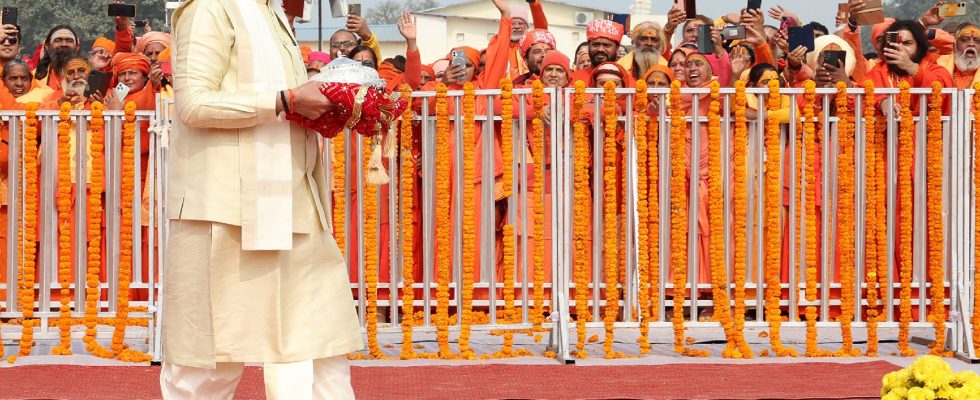The sky has been looking good for Narendra Modi so far. After ten years in power, his reappointment as head of India for a third term seemed a simple formality. But, on the eve of the general elections which will take place from April 19 to June 1, the Hindu nationalist leader, 73, is splashed by a monumental scandal.
On February 15, the Supreme Court put an end to a particularly opaque system of financing political life, set up in 2018 by the first Modi government. This gas plant was supposed to make dirty money disappear from electoral campaigns by channeling donations through banks, while hiding the identity of the donors. And that’s the whole problem: for the magistrates, this system “violated the right to information” of the billion voters in the South Asian giant.
The device was based on the “electoral bonds”, tax-exempt and uncapped bank bonds, which any private person, individual or company, could purchase under the seal of confidentiality from the country’s largest public bank, the State Bank of India (SBI). After a certain period, the SBI paid the money into the bank accounts of the political parties, following the instructions of the generous donors.
Ordered by the Supreme Court to reveal who gave and who received, the SBI released its figures in mid-March. The Indians then discovered the enormous amounts that these “electoral bonds” had made it possible to pay back in six years: the equivalent of 1.83 billion euros. Narendra Modi’s party, the BJP, alone captured 50% of this enormous envelope, leaving the 2,400 other political groups to share the rest. The Congress Party of the Nehru-Gandhi dynasty, in particular, received less than 12% of the total.
Generosity under constraint
In view of the spring 2024 elections, the BJP has continued to use this stratagem extensively in recent months, attracting an additional 926 million euros, which it will be able to receive. This year, the election could well break the record for the 2019 legislative elections, the most expensive of all time, all countries combined, according to the Center for Media Studies (CMS) in New Delhi, with 6.1 billion euros spent: thanks to “electoral bonds”, therefore, but also to direct donations from the Indian diaspora, the second largest in the world, and to the money that Hindu temples collect, in cash or gold, from believers.
For several years now, the Association for Democratic Reforms (ADR) in India has denounced a system “opening the floodgates of indefinite and mysterious donations, while legitimizing the injection of illicit money into the electoral and political process”. The matter could have ended there if another revelation had not taken place, much more embarrassing for Modi. Conglomerates run by oligarchs close to the head of government, such as billionaires Gautam Adani or Mukesh Ambani, have unsurprisingly paid their contributions through obscure subsidiaries. But the local press discovered that many other companies that had been generous had actually been so under duress.
Around twenty in number, the main donors were involved in the infrastructure sector. Depending on public markets and the goodwill of elected officials, they bought “electoral bonds” after having been subjected to all kinds of pressure, in the form of investigations and searches – from the tax administration; a state agency that tracks economic crimes, and the Central Bureau of Investigation, the Indian equivalent of the FBI, responsible for national security. “This is called extortion and it is the worst corruption ever,” commented Supreme Court lawyer Prashant Bhushan on his X account (formerly Twitter).
For Jairam Ramesh, spokesperson for the Congress Party, we have “terrified people” and this is “the biggest scandal in independent India”. Modi’s image is tarnished: an “anti-system” candidate, he won power in 2014 by promising to eradicate the corruption that, according to him, characterizes his opponents. The nationalist leader ended up being caught with his fingers in the jam pot.
.
